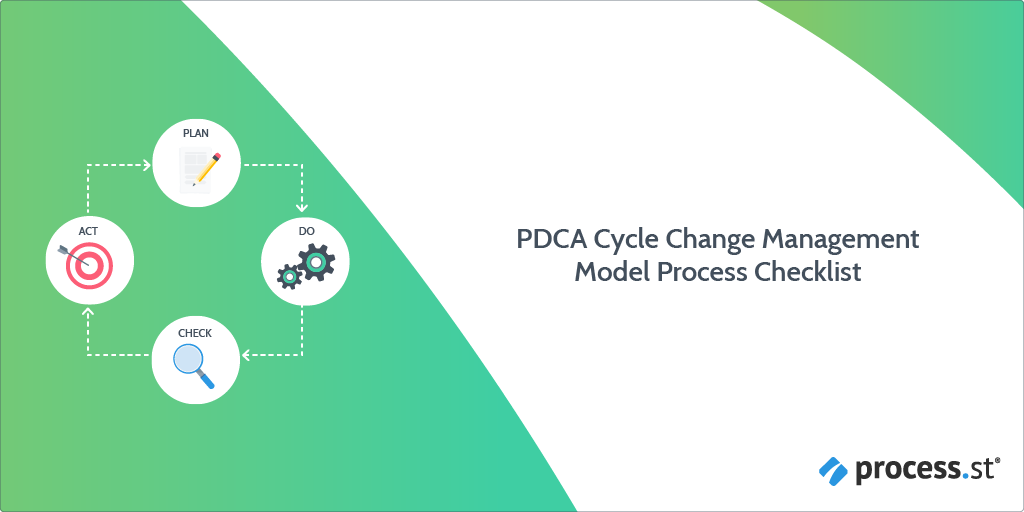The PDCA Cycle is an iterative four-step process, designed to manage business processes for continual improvement. It is also known as the Demming circle.
PDCA Cycle: An introduction
First introduced by Walter Shewhart and then developed on by W. Edwards Deming in the 1950s, the model looks at change as a feature inbuilt in business, and an essential part for continuous improvement.
There are four stages to the PDCA cycle:
- Stage 1: Plan
- Stage 2: Do
- Stage 3: Check
- Stage 4: Act
The approach is iterative - that is, it is a cycle. Other terms of the PDCA cycle include the Deming circle, the Shewhart cycle, the control circle, or the Plan-Do-Study-Act (PDSA) cycle.
It is best to use the PDCA cycle when, as defined by ASQ:
- Starting a new improvement project.
- Developing a new or improved design of a process, product, or service.
- Defining a repetitive work process.
- Planning data collection and analysis in order to verify and prioritize problems or root causes
- Implementing any change
- Working towards continuous improvement
What's good about it
The PDCA provides a simple and effective approach for solving problems and managing change. The model is best used for testing and improving measures on a small scale, before updating procedures and working methods.
The model provides structure to experimental learning on testing changes.
What's bad about it
The PDCA cycle can often result in quick-and-dirty tests of change. In this sense, the cycle must be used in caution.
In addition, by putting everything in a step-by-step process, there is little room for additional variables that will undeniably crop up during a project.
The cycle is often a slow process and therefore not well suited for emergencies. There is also the danger of paralysis by analysis - the project can get stuck too long at a given stage.
How to use this checklist
At the beginning of this checklist, you will be presented with a set of specialized questions given as form fields. You are required to populate each form field with your data.
The checklist is broken down into the 4 stages of the PDCA cycle:
- Stage 1 - Plan
- Stage 2 - Do
- Stage 3 - Check
- Stage 4 - Act
At the end of each stage, your supervisor/manager will review your work using Process Street's approvals feature. Other features used in this template include:
- Stop tasks - To ensure task order.
- Dynamic due dates - To make sure your initiative is reviewed on time.
- Role assignment - To delegate tasks within your team ensuring your supervisors is appropriately assigned to the review tasks.
- Approvals - Tasks can be accepted, rejected, and rejected with comments.





